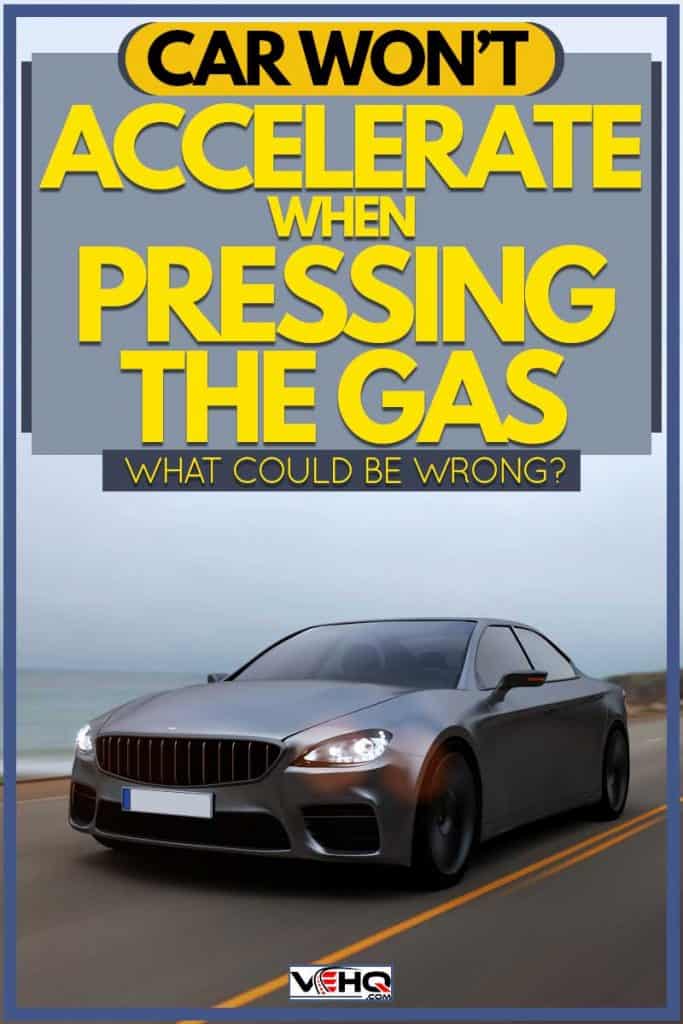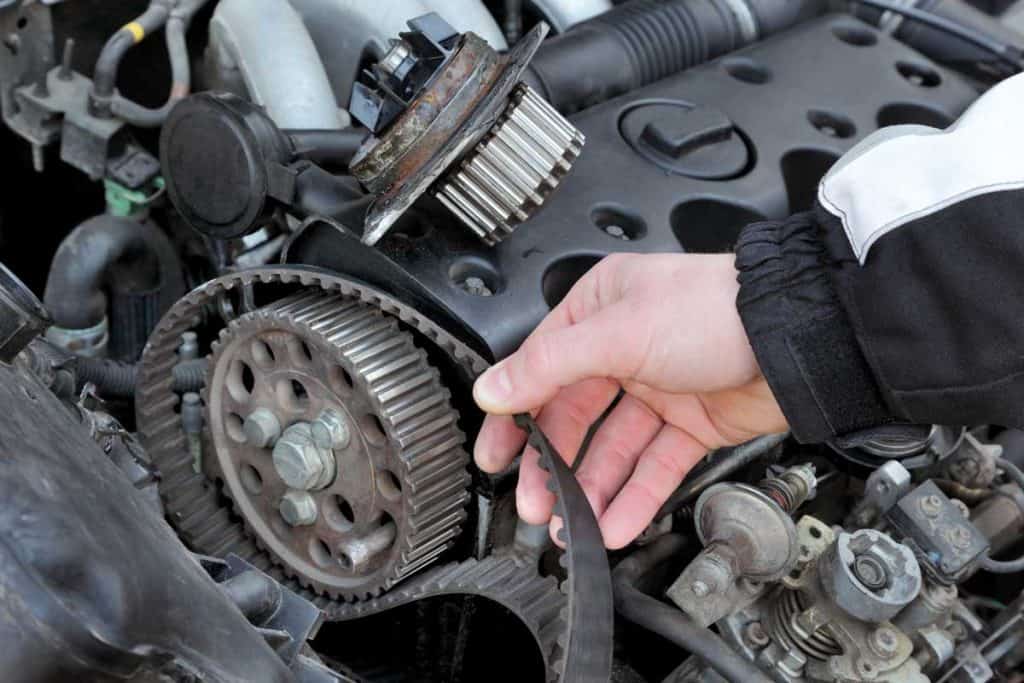 Step on the gas pedal, and you expect your car to GO! Reliable accelerating power can prevent an accident because your car won’t stall or struggle in situations like high-speed highway driving, entering the on-ramp, proceeding through an intersection, or climbing a hill. If your car accelerates poorly, it can be dangerous to drive.
Step on the gas pedal, and you expect your car to GO! Reliable accelerating power can prevent an accident because your car won’t stall or struggle in situations like high-speed highway driving, entering the on-ramp, proceeding through an intersection, or climbing a hill. If your car accelerates poorly, it can be dangerous to drive.
A well-tuned car will respond immediately when you press the gas pedal. If your car hesitates when you step on the gas, you’re probably wondering what could be wrong. We’ve researched probable causes of poor acceleration to find the answer for you.
If you experience poor acceleration or loss of power while driving, stop driving and park your car in a safe location as soon as possible. The potential cause could either be a simple fix or a complex mechanical repair such as:
- The parking brake is on.
- Worn/faulty clutch
- Worn, damaged, or misaligned timing belt
- Worn/faulty component in the fuel system
- Worn/faulty component in the exhaust system
Stopping to diagnose and repair the problem keeps you and other drivers safe and it prevents ongoing wear or damage to your car’s mechanical systems. Keep reading to learn how paying attention to your car’s symptoms when you experience poor acceleration can help to diagnose the problem.
What Can Cause Poor Acceleration?
Experiencing poor acceleration when you expect your car to move can be scary and dangerous. If your car sputters at high speeds, lacks sufficient power to climb a hill, or simply accelerates slowly when you need to go, you risk an accident occurring.
There are several reasons why your car might accelerate poorly, so taking the time to diagnose and repair the problem keeps you and other drivers safe and your car well-maintained.
Parking Brake
Is your car’s parking brake engaged? The parking brake will prevent your car from accelerating — as it should — if the brake is engaged when you press the gas pedal. Acceleration might feel sluggish. This simple mistake is easy to fix; just disengage the parking brake.
You’ll likely smell a burning odor while driving at high speeds or for a long duration with the parking brake on because the brake pads are getting too hot. Odds are you won’t permanently damage the parking brake, but you will put excessive wear on the brake pads.
Worn/Faulty Clutch
If your car has a manual transmission, a worn clutch could result in poor acceleration or a sudden loss of acceleration while driving, not when changing gears. Driving a car with a malfunctioning clutch is dangerous, so you should have the issue diagnosed by a reputable mechanic and repaired immediately. A worn clutch might need to be replaced (friction disc, pressure plate, and flywheel) to resolve the issue.
Worn/Damaged Or Misaligned Timing Belt

Because the timing belt helps to regulate the motion of the engine’s pistons, if it is faulty or even slightly misaligned, the timing belt can cause poor acceleration. The timing belt is linked to the camshaft and times the camshaft’s opening and closing of the valves. If you need a new timing belt or have recently had it replaced, consult a reputable mechanic to confirm that the alignment is correct.
Fuel & Exhaust System
Combustion engines rely on complex fuel and exhaust systems in order to run smoothly. When you step on the gas pedal, an instantaneous series of reactions occur, and without noticing any lag from the driver seat, your car accelerates.
Inside the engine, combustion (or burning) begins with a spark to ignite the right combination of fuel and oxygen. Combustion gases push the engine’s pistons into motion to rotate the crankshaft, and in turn, the transmission and powertrain work together to accelerate the car.
If any component of the fuel system, air intake, or exhaust system is malfunctioning, the engine won’t receive the right amount of fuel or oxygen to combust or be able to expunge the combustion gasses efficiently. Your car could accelerate poorly as the engine struggles.
How Does The Fuel System Cause My Car To Accelerate Poorly?
If you’ve ruled out other potential causes of poor acceleration, either the fuel or exhaust systems could still be the culprit. Where can you look to troubleshoot the problem?
Clogged/Faulty Fuel Pump
Is your engine getting enough fuel? The fuel pump moves fuel from the storage tank through the engine, so if the pump is clogged or not working properly, the engine won’t get enough fuel for combustion.
Leaking Fuel Line
A leaking fuel line is not only detrimental to your car’s ability to accelerate (the engine won’t get enough fuel) but, it also poses a dangerous flammable situation. If you smell gasoline or discover a puddle of gasoline beneath your car, you should have the car inspected immediately. Do not drive the car until the issue is resolved.
Dirty Fuel Filter
Fuel is pumped through a filter to remove impurities before entering the engine. If the fuel filter is excessively dirty or clogged, it will prohibit the right amount of fuel from moving through.
Clogged/Faulty Fuel Injector
The fuel injector regulates the amount of fuel that is released into the engine’s combustion chamber. Over time, contaminants can build-up inside the injector and the amount of fuel released will be less precise.
Dirty/Faulty Mass Air Flow Sensor
The airflow sensor monitors the amount of air intake into the engine’s combustion chamber. This sensor communicates with your car’s computer to determine the appropriate amount of air to fuel ratio. So, if the sensor is dirty, it could miscalculate and inhibit combustion by not allowing sufficient air or allowing too much air into the combustion chamber.
Dirty Air Filter
Air filters cleanse the air on its way into the combustion chamber so both the engine components and fuel remain free from impurities. A dirty air filter impedes airflow.
Leaking Vacuum Line
Fuel and air are transported through the car’s engine via vacuum-sealed lines. A crack or hole in the line or a loose connection means the vacuum-seal is broken. You might experience slower acceleration, lack of power, and the engine light can come aglow as a result.
Clogged/Faulty Catalytic Converter
Not only will your car accelerate slowly, but if the catalytic converter is clogged or has failed, your engine will run hotter. The catalytic converter is part of the car’s exhaust system that allows the appropriate amount of exhaust gases to exit the engine.
Faulty Oxygen (O2) Sensor
The oxygen sensor monitors the car’s emissions, reporting to the computer how the air to fuel mix is burning in the combustion chamber. Whether the fuel is burning rich, getting too much oxygen, or burning lean, getting too little oxygen can alter your car’s performance.
Fuel and exhaust systems can require extensive repair, so it is a good idea (especially if you are not mechanically inclined) to consult a reputable mechanic to confirm the diagnosis and repair the problem.
When I Press On The Gas My Car Hesitates - Why Is That?
Hesitation during acceleration is one of the symptoms of an engine misfire. Another symptom might be that your car idles unsteadily, or the engine shuts off while at idle. The check engine light could be yet another indicator of engine misfire, especially if you’ve experienced the other symptoms.
Engine misfire can be difficult to diagnose because it can sometimes happen sporadically, and symptoms tend to be brief. The lack of power experienced by your car during an engine misfire means that part of the engine’s combustion process isn’t functioning properly. You should diagnose and repair the problem because an engine misfire potentially decreases gas mileage, increases emissions, and can cause permanent damage to other engine components.
Corroded/Faulty Spark Plug
Any of the aforementioned problems in the fuel or exhaust system could be the cause of engine misfire. Alternatively, a faulty spark plug could cause the engine to misfire. A spark plug provides the spark that ignites the fuel in the engine in order for combustion to occur. A corroded or faulty spark plug will not spark initially.
What Does Engine Misfire Feel Like?
The feeling of either a slight or an extreme jerk from the engine when your car tries to accelerate could mean the engine is misfiring.
You might also feel vibrations in the cabin due to an engine misfire because when a piston is not functioning, the engine becomes unbalanced.
In summary, if your car accelerates poorly when you press on the gas pedal, it can be dangerous to drive and detrimental to the condition of the car’s brakes, clutch, or other mechanical components. You should park the car in a safe location and consult the advice of a reputable mechanic as soon as possible to diagnose and repair the issue.
